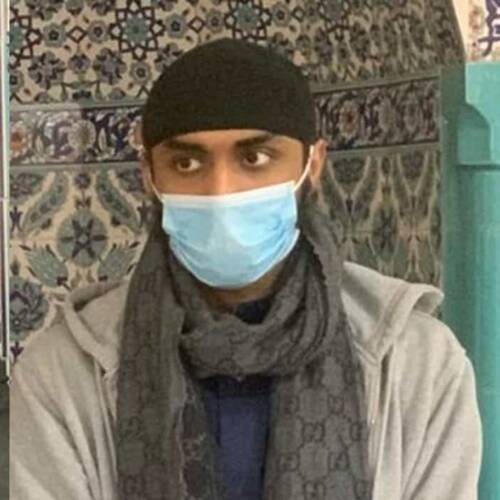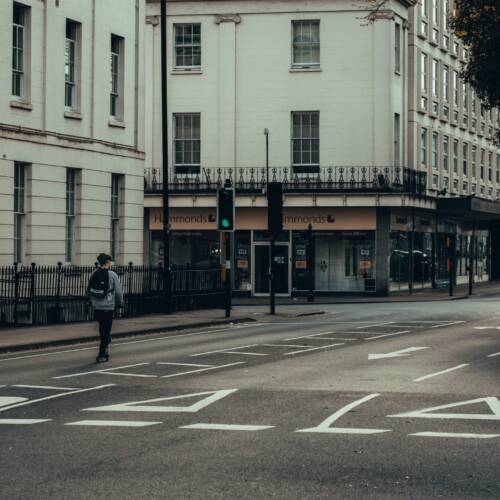
British Muslims Have Been Severely Impacted by COVID-19
10 Dec 2020This article is part 2 of a series published by Urban Muslimz, looking at the findings of surveys and research conducted by several Muslim organisations in the UK. If you haven’t already, please read part I.
In our previous article, we discussed the findings of Muslim Census, who conducted a survey over the month of August, to study the impact of COVID-19 Pandemic on Muslim communities.
The organisation surveyed 1000 Muslim 52% of whom were female, and 48% of whom were male. The majority of the participants were from London (59%) while the rest were distributed around the UK.
The findings of the survey were analysed with regards to the impact of COVID-19 on Muslim Women in our first article.
Findings by the Office of National Statistics have highlighted that British Muslim communities had suffered the highest levels of COVID-19 mortality compared to the other faith groups in the country.
Now, a new study by the Centre for Muslim Policy Research has looked into further impacts, as well as potential causes for the high levels of mortality.
Their research confirmed what many of us already suspected, that pre-existing health inequalities and vulnerabilities have contributed significantly to the deaths among British Muslim communities.
The report found that the long-term socio-economic position of British Muslim communities correlated with deprivation and inequalities, with many such areas suffering from poor healthcare.
“COVID-19 has had a devastating impact on Britain’s Muslim community. It is overrepresented in morbidity and mortality rates compared to other faith groups. Our report for the first time assessed three crucial risk factors (health, employment and housing) that have caused British Muslims to have a disproportionate impact,” said Nadir Mohammad, the director of Centre for Muslim Policy Research, in an exclusive comment to Urban Muslimz.
Housing has been a problem in particular, with many British Muslims living in low quality and overcrowded housing that made infections easier and isolation harder.
This was combined with the fact that many British Muslims work in the medical sector or other frontline professions where access to PPE has been a recurring problem. The initial months of the outbreak also saw people of ethnic minorities receiving insufficient support and risk assessment. Indeed, the report found that British Muslims working in the NHS experienced the highest levels of discrimination.
However, a hostile environment was also found to have contributed to health inequalities, with many British Muslims unfortunately suspicious of healthcare on account of surveillance. That healthcare workers have been seen as the frontline against not only the coronavirus but also counter-extremism efforts meant that many British Muslims expressed fears of prejudice from healthcare professionals.
Other factors, typically relating to ethnicity, were also found. Among these are higher incidences of Type 2 diabetes among ethnic minorities compared to the white British population.
Among Pakistani and Bangladeshi communities, for instance, 70% of all women above 65 reported having a “limiting long term illness,” compared to the national average of 56%.
To alleviate these issues, the report made several suggestions. Among these are:
- Establishing links with grassroots Muslim organisations to implement risk mitigation strategies;
- Improved public health and communication strategy that avoids blame and stigma;
- Ensuring that all healthcare and frontline workers have personalised and culturally-sensitive risk assessment, access to transparent reporting, and accountable systems;
- Ensuring that faith-sensitive PPE availability for headscarves, beards and other displays of faith;
- Implementation of a fully-functioning and decentralised test, track & trace and isolation systems that ensures the inclusion of marginalised groups;
- Setting up temporary accommodations for key-workers living in multi-generational households;
- Data collection and reporting by religion as a protected characteristic to be made mandatory;
- A personalised risk-assessment tool;
- Timely, sensitive and transparent communication of scientific and medical developments through the use of wide-ranging channels including ethnic and faith media and grassroots influencers;
- Recruitment, training and roll-out of community health champions to disseminate information within communities;
- Publication of data privacy policies to help explain the purpose of data collection and allay fears of surveillance;
- Uptake of members of the Muslim community in clinical trials.
The question remains, will these recommendations be taken seriously by the government and Muslim communities?
If so, what else can we do in order to alleviate the harm done by the COVID-19 pandemic on our communities?















